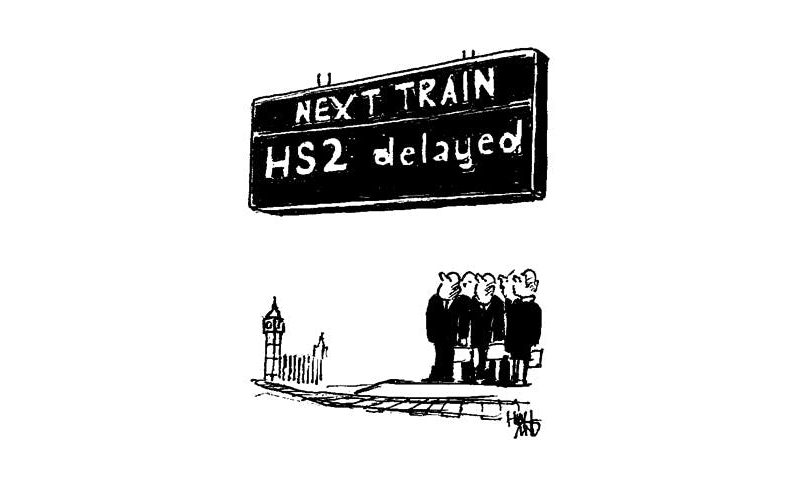Covid has doomed the public finances — not just because the cost of mitigating it has been high in itself but because it has normalised high public spending. When you have just allocated £37 billion to Test and Trace and spend £54 billion on the furlough scheme, a £106 billion high-speed railway to Manchester and Leeds looks relatively good value — at least taxpayers will have something lasting for their money. And who would even notice if the budget for that railway quietly crept up by a further £1.7 billion?
That is exactly what has happened today. The construction costs of the first phase of the railway, from London to Birmingham, have apparently been increased by social distancing. Workmen can’t work so close to each other and therefore productivity has been reduced, while work had to be suspended altogether for a period during spring 2020.
Once fiscal discipline has been lost it is very difficult to regain
I am not entirely convinced of this excuse. True, social distancing has increased costs for all kinds of businesses but just how much of HS2’s budget was supposed to be spent during lockdowns anyway? According to the written answer given to the Commons by Grant Shapps in 2019 the first phase of the railway — from Euston to Birmingham — is itself scheduled to take a decade. The loss of a few weeks last year should not have made a huge difference. Moreover, the temporary cuts to many train services over the past year ought to have made life easier for construction work, reducing the number of trains that need to be diverted for track possessions. There is another possibility: that Covid is being used to justify yet another increase in a budget that has run away from its original estimate at alarming speed.
But if Boris Johnson is really hoping for the costs of HS2 to be lost amid the increase in public spending he may be disappointed. The Chesham and Amersham by-election has demonstrated just how poisonous HS2 — and perhaps other vanity projects, too — is for voters. A government that is still popular in many respects went down to a hefty defeat thanks largely to a local issue. Any kind of development, it has to be said, can leave voters unhappy. But with most infrastructure projects there is at least some kind of upside: permanent jobs, a motorway junction to make commuting easier, new housing for local people struggling to find a home. HS2 offers Chesham and Amersham nothing but disruption. There will be no station, no jobs, no nothing. Moreover, the same is true of many constituencies all the way up the line.
Doug Oakervee, whose report into HS2 inspired the Prime Minister to proceed with the rail line, has said that his recommendation to continue was partly on the basis that £9 billion had already been spent on the preparatory work for the project: and would have been wasted had work been stopped. Yet we now face being hit for far more as costs are endlessly revised upwards.
For HS2, read the royal yacht, a bridge or tunnel to Northern Ireland, a spaceport and many other things. Once fiscal discipline has been lost it is very difficult to regain. The post-Covid spending spree is not going to end happily.







Comments